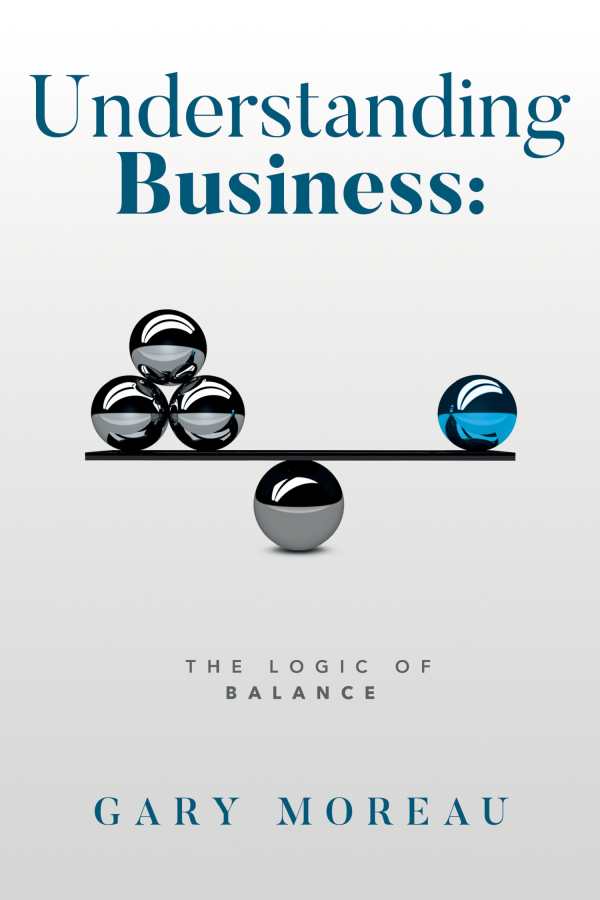Understanding Business
The Logic of Balance
Understanding Business challenges many of the traditional perceptions of American businesses, giving business executives a lot to think about.
In Understanding Business, Gary Moreau takes targeted aim at some of the sacred cows of American businesses.
Gary Moreau’s business background is unusual and intriguing. He spent twenty-five years of a forty-plus-year career as a C-level executive, working for multinational companies in North America, Europe, and Asia. Moreau lived and worked in China for nine years, which gave him a unique perspective on the stark contrast between American and Chinese businesses; it helps shape the book’s content.
Several of Moreau’s observations and arguments identify American business flash points that should make readers sit up and take notice. One attribute deserving of ridicule, for example, is corporate America’s reliance on process. “Companies spend the vast majority of their time and resources today defining and enforcing processes,” writes Moreau. While he recognizes that process is a necessary evil, Moreau argues that it can suppress innovation and even contribute to poor talent management.
Perhaps even more egregious, Moreau suggests, is the penchant of American businesses to depend on deductive reasoning, often to the exclusion of inductive reasoning. This theme pervades the whole book; Moreau uses numerous examples to demonstrate how American companies cling to deduction while Chinese companies embrace induction. One is not necessarily better than the other; rather, Moreau concludes, a balance of both is needed.
Particularly fascinating is how Moreau contrasts the generational differences between American baby boomers (deductive) and millennials (inductive), seeing hope in today’s youth: “We deduced our way into Iraq and Afghanistan,” he writes, “and we deduced our way into a new paradigm of tight immigration control. Our youth, however, are increasingly embracing the inductive values of inclusion and the elimination of both privilege and conspicuous consumerism.”
There are several other business targets Moreau skewers, among them paying lip service to “social responsibility,” discrimination against women and minorities in the workplace, the ineffectiveness of business communication, and coupling performance reviews with salary adjustments. In most cases, the book’s criticisms seem justified, although the negatives of American businesses get far more attention than the positives. Likewise, the largely complimentary assessment of Chinese businesses offered in the book’s examples seem subjective, even unfair at times. Still, the book’s short chapters, relevant examples, and lively prose make for an engaging read.
Moreau’s impassioned argument for the logic of balance in business, something he clearly adapted from his experience in China, should not be taken lightly. Continuing to rely solely on deductive reasoning suggests that American businesses have “lost equilibrium,” writes the author, and it is “collective perspectives [that] do benefit the individual in the end.”
Understanding Business challenges many of the traditional perceptions of American businesses, giving business executives a lot to think about.
Reviewed by
Barry Silverstein
Disclosure: This article is not an endorsement, but a review. The publisher of this book provided free copies of the book and paid a small fee to have their book reviewed by a professional reviewer. Foreword Reviews and Clarion Reviews make no guarantee that the publisher will receive a positive review. Foreword Magazine, Inc. is disclosing this in accordance with the Federal Trade Commission’s 16 CFR, Part 255.

